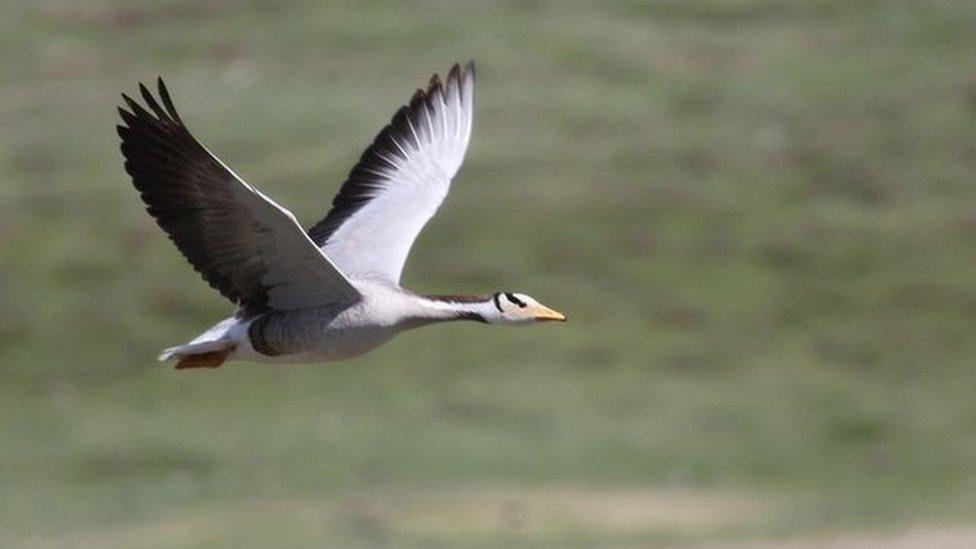Garden birds: Feeding brings blackcaps to the UK
- Published
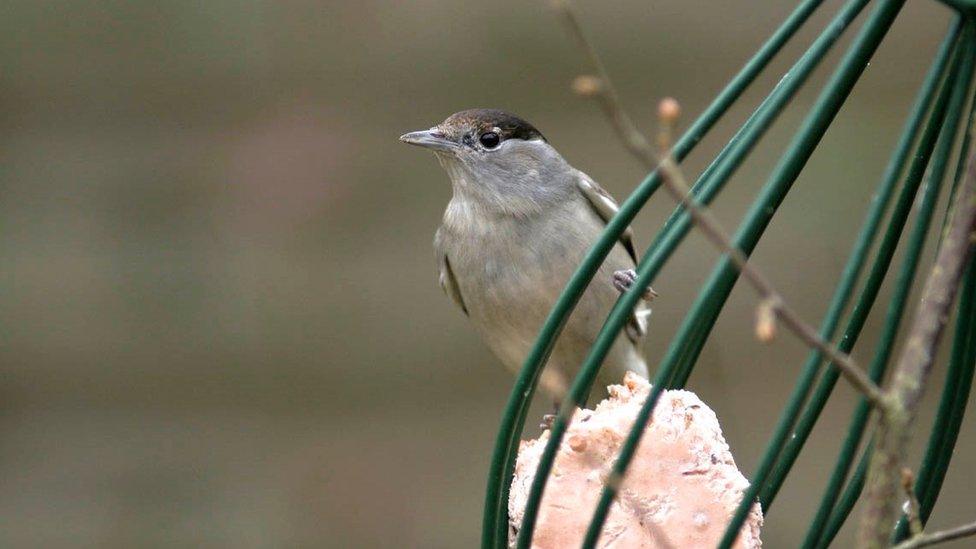
Blackcaps seem to have a particular preference for sunflower hearts and fats in garden feeders
Putting out birdfeed in Britain's gardens is shifting the migration of one particular winter visitor, the blackcap, scientists say.
Researchers from the British Trust for Ornithology used data from a 12-year garden bird survey, external in their study.
This revealed that many blackcaps from Central Europe had shifted their winter migration, partly because of the supply of garden food in Britain.
The findings are published in the journal Global Change Biology.
"This is the first time that we've shown that feeding birds actually influences the distribution of a bird species across a whole country," lead researcher Dr Kate Plummer told BBC News.

The northern nightingale
Dr Kate Plummer from the British Trust for Ornithology explains the findings to BBC science reporter Victoria Gill
The blackcap is a greyish warbler; only the male has a jet-black cap, the female a chestnut one
The birds' fluting song has earned it the name "northern nightingale"
UK breeding birds arrive in April and May, leaving in September and October
Most of the increasing number of birds that winter in the UK are found in England
Source: RSPB

Until the 1950s, there were hardly any records of blackcaps being in Britain in the winter, but in the past 60 years, researchers say, the number has increased "dramatically".
"We saw that both [climate change and garden feeding] were driving this shift in migration [from the Mediterranean to Britain]," Dr Plummer said.
"Where there was a reliable supply of food, blackcaps were more likely to be seen."
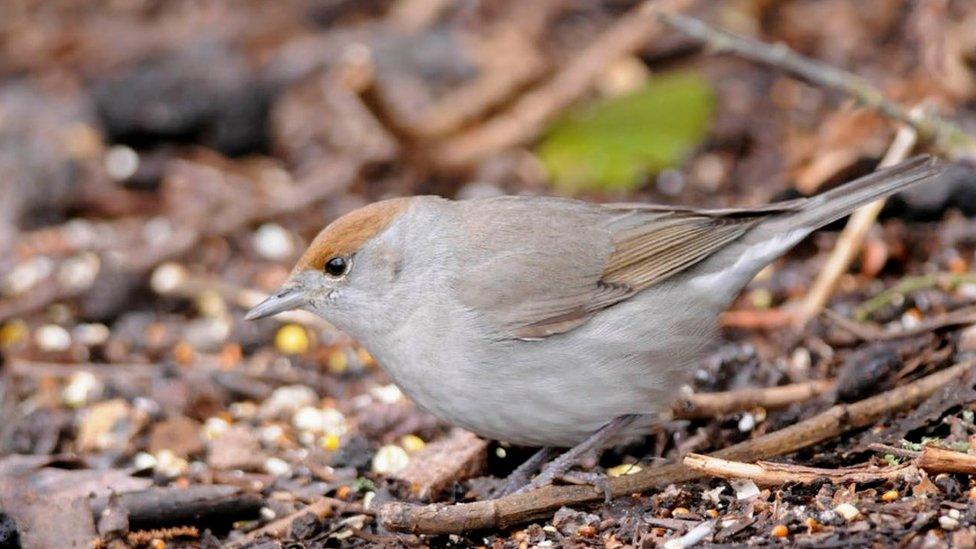
The females have chestnut coloured - rather than black - caps
Throughout the 12 year period during which the observations were gathered - by more than 14,000 volunteers submitting a weekly record of the birds in their gardens - blackcaps became more strongly associated with garden food supply.
"So it looks like like they're evolving to adapt to using this big supply of winter food," said Dr Plummer.
Graham Madge, from the RSPB, told BBC News that it was only because "people take such a keen interest" and "monitor birds in these surveys, that we're able to understand the impacts we're having on birds and wildlife".
"It's positive news that blackcap numbers are increasing here, but when it comes to house sparrows and starlings, unfortunately [in these same surveys] we're seeing massive declines," he added.
As for the blackcap's preferred variety of feed - the birds appear to particularly like fats and sunflower hearts.
- Published11 June 2015
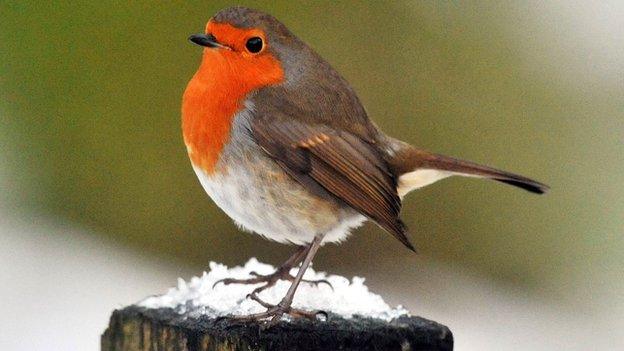
- Published10 March 2015
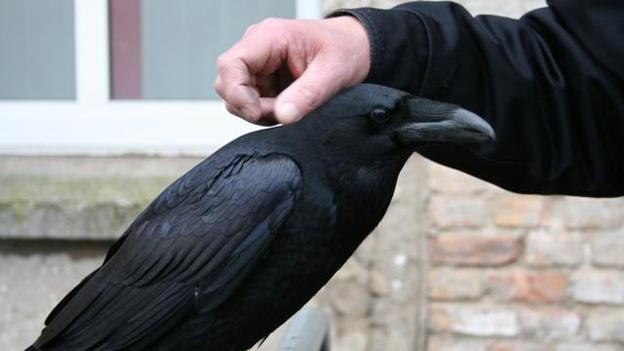
- Published15 January 2015
